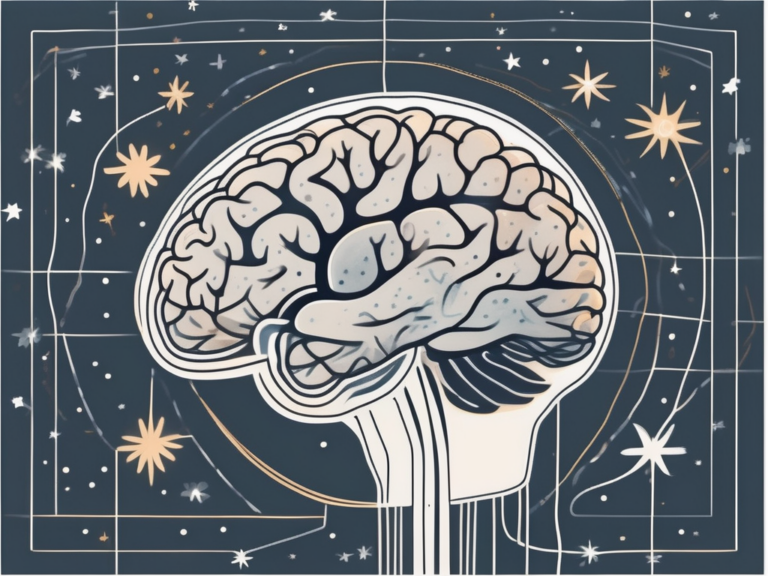Tips on How to Sleep Better: A Comprehensive Guide
A good night’s sleep is crucial for our overall health and well-being. It allows our bodies and minds to recharge, repair, and prepare for the challenges of the day ahead. Unfortunately, many people struggle to get the quality sleep they need. In this comprehensive guide, we will explore the science behind sleep, common sleep disorders, and practical tips to help you create an ideal sleep environment and establish healthy sleep hygiene practices. So let’s dive in and unlock the secrets to better sleep!
Understanding the Importance of Good Sleep
Sleep is not simply a period of rest. It is a complex process that involves different stages, each serving a specific purpose. During sleep, our bodies repair and regenerate tissues, consolidate memories, and regulate hormones. Good sleep enhances cognitive function, mood, and productivity. On the other hand, poor sleep quality can have detrimental effects on our physical and mental health.
The Science Behind Sleep
While we sleep, our brain cycles through different stages of sleep, including light sleep, deep sleep, and REM (rapid eye movement) sleep. Each stage plays a vital role in restoring and rejuvenating our bodies. For example, deep sleep is responsible for physical rest and recovery, while REM sleep facilitates learning and emotional processing.
Health Risks of Poor Sleep
Chronic sleep deprivation or poor sleep quality can have profound consequences on our health. It is linked to an increased risk of developing conditions such as obesity, heart disease, diabetes, and cognitive decline. Furthermore, inadequate sleep can weaken our immune system, leaving us more vulnerable to infections and illnesses.
Let’s delve deeper into the importance of deep sleep. During this stage, our bodies undergo significant physiological changes that promote healing and restoration. It is during deep sleep that our muscles repair themselves, and our energy stores replenish. Without enough deep sleep, we may wake up feeling physically exhausted, even after a full night’s sleep.
Furthermore, REM sleep, also known as dream sleep, is essential for our emotional well-being. During this stage, our brains are highly active, processing emotions and memories. It is during REM sleep that we consolidate what we have learned during the day, helping us retain information and improve our overall cognitive function.
When we consistently experience poor sleep quality, the negative effects can extend beyond physical health. Our mental health can also suffer. Sleep deprivation has been linked to an increased risk of developing mental health disorders such as anxiety and depression. Lack of sleep can disrupt the balance of neurotransmitters in our brain, affecting our mood and emotional stability.
It is crucial to prioritize good sleep hygiene to ensure we reap the benefits of quality sleep. This includes establishing a regular sleep schedule, creating a comfortable sleep environment, and practicing relaxation techniques before bed. By prioritizing our sleep, we can enhance our overall well-being and lead healthier, more productive lives.
Identifying Your Sleep Problems
Before we can address sleep issues, it is crucial to identify the root cause of your sleep problems. Common sleep disorders, such as insomnia, sleep apnea, and restless leg syndrome, can disrupt your sleep patterns and impact your overall well-being.
Insomnia, one of the most prevalent sleep disorders, is characterized by difficulty falling asleep or staying asleep. It can be caused by various factors, including stress, anxiety, certain medications, or underlying health conditions. The persistent struggle to get a good night’s sleep can leave you feeling exhausted and affect your ability to function during the day.
Sleep apnea, another common sleep disorder, involves interrupted breathing during sleep, leading to poor sleep quality. It can be caused by the relaxation of throat muscles, blocking the airway and causing brief pauses in breathing. This disruption can occur multiple times throughout the night, leaving you feeling fatigued and potentially increasing the risk of other health issues, such as high blood pressure and heart problems.
Restless leg syndrome, while less known, can also significantly impact your sleep. It causes an irresistible urge to move your legs, often accompanied by uncomfortable sensations. This urge can be particularly bothersome at night, making it difficult to relax and fall asleep. The constant need to move your legs can lead to fragmented sleep, leaving you feeling unrested and groggy during the day.
Recognizing Symptoms of Sleep Deprivation
Sleep deprivation manifests not just as feeling tired, but also as difficulties with concentration, memory, and mood regulation. You may find it challenging to focus on tasks, struggle to remember important information, and experience mood swings. Daytime sleepiness is a common symptom, making it harder to stay alert and engaged throughout the day. This can affect your productivity, both at work and in your personal life.
Irritability is another common symptom of sleep deprivation. Lack of sleep can amplify your emotional responses, making you more prone to frustration, impatience, and even anger. It can strain relationships and make it harder to navigate daily interactions. Additionally, decreased productivity is a significant consequence of sleep deprivation. When you are sleep-deprived, your cognitive abilities are compromised, leading to slower thinking, reduced problem-solving skills, and decreased creativity.
Recognizing these symptoms is crucial in understanding the impact sleep deprivation has on your overall well-being. By identifying the signs, you can take necessary steps to improve your sleep hygiene and establish healthy sleep habits. Prioritizing quality sleep will not only enhance your physical and mental health but also improve your overall quality of life.
Creating an Ideal Sleep Environment
Your sleep environment plays a crucial role in the quality of sleep you experience. By making a few simple adjustments, you can create a sleep-friendly oasis that promotes deep, restorative slumber.
The Role of Your Bedroom
Your bedroom should be a sanctuary dedicated to sleep. Keep it clean, uncluttered, and comfortably cool. Eliminate sources of noise and invest in blackout curtains or an eye mask to create a dark environment that signals your brain it’s time to sleep.
But did you know that the color of your bedroom walls can also affect your sleep? Research suggests that certain colors can promote relaxation and tranquility, while others can stimulate the brain and hinder sleep. Consider painting your walls in soothing shades like soft blues, greens, or lavender to create a calming atmosphere conducive to sleep.
Choosing the Right Mattress and Pillow
Your mattress and pillow directly influence your comfort and spinal alignment during sleep. Find a mattress that provides adequate support for your body type and a pillow that keeps your neck and head properly aligned. Experiment with different types and firmness levels until you find what works best for you.
When it comes to choosing a mattress, it’s important to consider factors beyond just firmness. Look for materials that offer breathability, such as memory foam with cooling gel or latex, to help regulate your body temperature throughout the night. Additionally, if you share your bed with a partner, consider a mattress with motion isolation technology to minimize disturbances caused by movement.
As for pillows, there are various options available to cater to different sleep positions and preferences. Side sleepers may benefit from a firmer pillow to keep their neck aligned, while stomach sleepers may prefer a softer, flatter pillow. Back sleepers often find medium-firm pillows to be the most comfortable. Don’t be afraid to try different pillows until you find the perfect match for your needs.
The Impact of Diet and Exercise on Sleep
What you eat and how physically active you are can significantly impact your sleep quality. By making smart choices in your diet and incorporating regular exercise, you can improve both the duration and depth of your sleep.
Foods That Promote Sleep
Certain foods contain nutrients that promote relaxation and sleep. Incorporate foods rich in tryptophan, magnesium, and calcium into your evening meals. These include turkey, nuts, seeds, leafy green vegetables, and dairy products.
Let’s take a closer look at these sleep-promoting nutrients. Tryptophan is an amino acid that helps produce serotonin, a neurotransmitter that regulates sleep. It can be found in turkey, which is why you might feel sleepy after a Thanksgiving feast. Magnesium, on the other hand, plays a crucial role in regulating the body’s stress response and promoting relaxation. Foods like nuts and seeds, such as almonds and pumpkin seeds, are excellent sources of magnesium. Lastly, calcium is not only essential for bone health but also for the production of melatonin, a hormone that regulates sleep. Dairy products like milk and yogurt are rich in calcium and can contribute to a good night’s sleep.
The Best Exercises for Better Sleep
Regular exercise can help regulate your sleep-wake cycle and promote better sleep. Aim for at least 30 minutes of moderate-intensity exercise such as walking, cycling, or swimming each day. However, avoid vigorous exercise close to bedtime, as it may stimulate your body and make it harder to fall asleep.
Now, let’s delve deeper into the benefits of exercise for sleep. Engaging in physical activity increases the production of endorphins, which are natural mood boosters. These endorphins can help reduce stress and anxiety, two common culprits of sleep disturbances. Additionally, exercise promotes the release of adenosine, a chemical that builds up in the brain throughout the day and contributes to sleep pressure. By increasing adenosine levels, exercise can help you feel more tired and ready for a restful night’s sleep.
Furthermore, regular exercise can improve sleep quality by reducing symptoms of sleep disorders such as insomnia and sleep apnea. It can also regulate your body’s internal clock, known as the circadian rhythm, which plays a vital role in determining when you feel sleepy and when you feel awake. By aligning your exercise routine with your natural circadian rhythm, you can optimize your sleep-wake cycle and enhance the overall quality of your sleep.
The Role of Stress and Mental Health in Sleep Quality
Stress and mental health play significant roles in sleep quality. When we are stressed, our bodies produce more cortisol, a hormone that can interfere with sleep. Additionally, conditions such as anxiety and depression can disrupt sleep patterns. Addressing these issues is crucial for improving sleep.
How Stress Affects Sleep
Stress can result in racing thoughts, anxiety, and increased physical tension, making it difficult to fall asleep and stay asleep. Incorporating stress management techniques such as meditation, deep breathing exercises, and journaling can help calm the mind before bedtime.
Mental Health and Insomnia
Anxiety, depression, and other mental health conditions can contribute to insomnia. Seeking professional help and implementing appropriate treatment strategies, such as therapy or medication, can help manage these conditions and improve sleep quality.
Furthermore, it is important to note that stress not only affects the quantity of sleep but also the quality. When we are stressed, our sleep may be more fragmented, with frequent awakenings throughout the night. This can lead to a feeling of unrest and fatigue even after a seemingly adequate amount of sleep. Therefore, it is essential to address stress levels to ensure a restful and rejuvenating sleep experience.
In addition to stress, mental health conditions such as anxiety and depression can have a profound impact on sleep quality. Anxiety can cause racing thoughts and a constant state of worry, making it challenging to relax and fall asleep. Depression, on the other hand, can lead to feelings of fatigue and excessive sleepiness, yet still result in poor sleep quality. It is crucial to address these underlying mental health conditions to improve sleep patterns and overall well-being.
When it comes to managing stress and mental health for better sleep, it is important to adopt a holistic approach. Alongside stress management techniques and seeking professional help, incorporating a healthy lifestyle can also contribute to improved sleep quality. Regular exercise, a balanced diet, and a consistent sleep schedule can all play a role in promoting better sleep and overall well-being.
Sleep Hygiene Practices for Better Rest
Sleep hygiene refers to a set of habits and practices that promote healthy sleep. By following these guidelines, you can establish a routine that signals to your body it’s time to wind down and prepare for sleep.
Establishing a Sleep Schedule
Try to go to bed and wake up at the same time every day, even on weekends. This consistency helps regulate your body’s internal clock and optimize the quality of your sleep. Create a relaxing pre-sleep routine that includes activities such as reading, taking a warm bath, or listening to calming music.
Bedtime Routines for Adults
Avoid stimulating activities close to bedtime, such as watching TV or using electronic devices. The blue light emitted by screens can interfere with your sleep cycle. Instead, engage in relaxing activities like reading or practicing mindfulness to help quiet your mind and prepare for sleep.
Additionally, it’s important to create a sleep environment that promotes restful sleep. Make sure your bedroom is cool, dark, and quiet. Consider using earplugs or a white noise machine to block out any disruptive sounds. Invest in a comfortable mattress and pillows that provide adequate support for your body. Creating a cozy and inviting sleep space can greatly enhance the quality of your rest.
Furthermore, be mindful of your caffeine intake, especially in the afternoon and evening. Consuming caffeine too close to bedtime can interfere with your ability to fall asleep and stay asleep. It’s best to limit your consumption of caffeinated beverages and opt for decaffeinated options, herbal teas, or warm milk instead.
Medical Treatments for Sleep Problems
If lifestyle changes and sleep hygiene practices alone do not improve your sleep, you may need medical intervention. Over-the-counter sleep aids can provide temporary relief, but it is essential to consult a sleep specialist for a proper diagnosis and personalized treatment plan.
Over-the-Counter Solutions
Occasionally, over-the-counter sleep aids containing antihistamines can help with short-term sleep difficulties. However, these should only be used sparingly, as they can carry side effects and may not address the underlying cause of your sleep troubles.
When to Consult a Sleep Specialist
If your sleep problems persist or significantly affect your daily life, it is crucial to seek professional help. A sleep specialist can assess and diagnose any underlying sleep disorders and recommend appropriate treatment options, such as cognitive-behavioral therapy for insomnia or continuous positive airway pressure (CPAP) for sleep apnea.
The Role of Technology in Sleep Improvement
While excessive use of technology can hinder sleep, it can also be harnessed to improve your sleep quality. Sleep tracking devices and mobile applications can provide valuable insights into your sleep patterns and help you make informed decisions about your sleep habits.
Sleep Tracking Devices
Sleep tracking devices, such as smartwatches or fitness trackers, monitor your sleep duration, sleep stages, and even heart rate variability during sleep. By analyzing this data, you can identify trends and patterns, allowing you to make adjustments to your sleep routine and track your progress over time.
Apps for Better Sleep
Several mobile applications can assist with relaxation and promote better sleep. These apps often offer guided meditation, soothing sounds, or white noise, helping create a sleep-friendly atmosphere. Some apps even provide personalized sleep recommendations based on your tracked sleep data.
Conclusion: Prioritizing Sleep for Better Health and Well-being
By understanding the importance of good sleep, identifying any sleep problems, and implementing practical tips to improve your sleep environment and establish healthy sleep hygiene practices, you can unlock the secrets to better sleep. Remember, prioritizing sleep is not a luxury; it is an essential component of a healthy lifestyle that can enhance your physical, mental, and emotional well-being. Sweet dreams!






